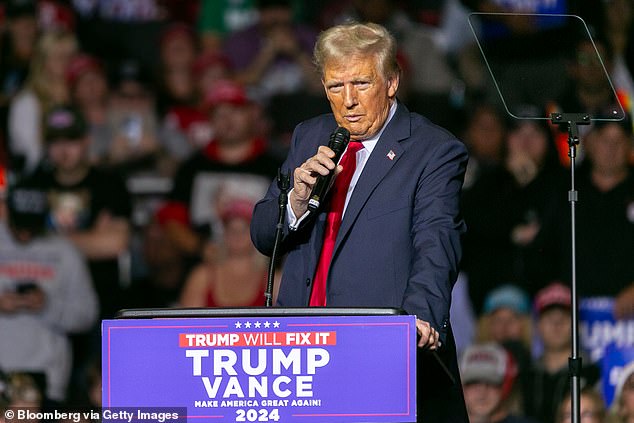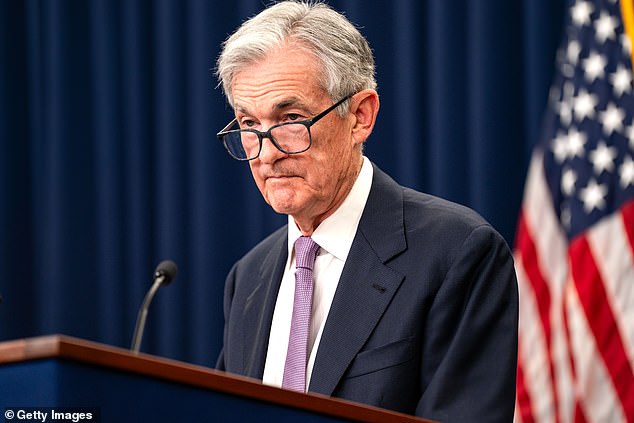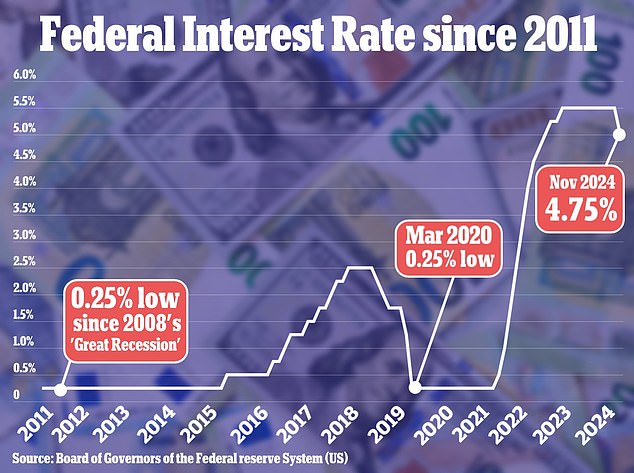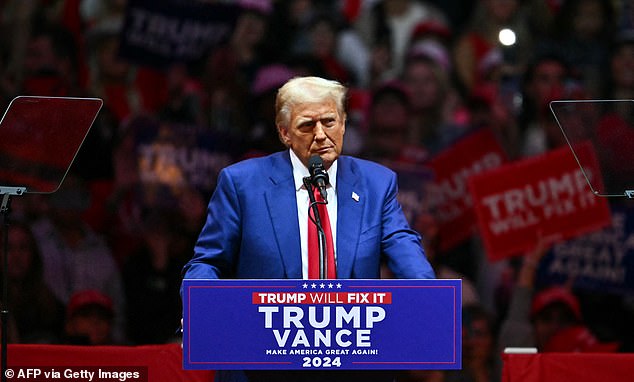Liberal economist Larry Summers issues frightening warning about inflation to Americans following Trump’s election
Liberal economist Larry Summers warned that inflation is still not set in stone and that a Trump administration could make matters worse.
Summers, who served as Treasury Secretary under Bill Clinton and also advised Barack Obama after the 2008 financial crisis, was correct in his 2021 prediction that failure to control “Bidenflation” would bring back Donald Trump.
In a speech to the New York Economic Club, Summers said the Jerome Powell-led Federal Reserve is still not taking the situation seriously enough.
“My own assessment is that the Fed and markets continue to underestimate the risk of overheating,” Summers said.
He then predicted potential disaster for a decision Powell has already made: “I ask myself, why is lowering rates a priority in that environment?”
Liberal economist Larry Summers warned that inflation is still not set in stone and that a Trump administration could make matters worse

Summers is concerned that President-elect Donald Trump will only make “Bidenflation” worse
The central bank cut by 25 basis points on Thursday, bringing interest rates down between 4.5 percent and 4.75 percent.
Summers called this both an “astonishing” and a “huge” mistake, similar to when the Fed was late in raising rates three years ago.
“I worry that the Fed will respond to inflation risks more than once burned out, twice shy,” he said.
Lower rates are good news for consumers because it makes borrowing money cheaper, and should mean cheaper loans and credit card rates eventually trickle down to Americans.
It is the second time in a row that the Fed, led by Powell, has cut rates this year, following an aggressive rate hike campaign to curb inflation.
Summers, however, remains unconvinced: “On inflation, the work is not done yet,” Powell said.
He added that he worries that Trump, by using tariffs, could worsen a Biden problem.
“There is a very substantial risk that the president will try to implement what he talked about. If he does, the consequences will likely be significantly greater inflation than what was wrought by the excessive Biden stimulus,” Summers said.

He then predicted potential disaster for a decision Jerome Powell has already made: “I ask myself, why is lowering rates a priority in that environment?”

The central bank cut rates by 25 basis points on Thursday, bringing yields down to between 4.5 percent and 4.75 percent
Trump is expected to let Powell remain in office until the end of his term in May 2026. CNN.
He says there could be a “substantial adverse supply shock from higher prices” and a “substantial risk of labor shortages, which in turn is an inflationary force” from Trump’s plan to deport illegal migrants.
While Trump could still change his mind, the current thinking among him and his economic team is that Powell will remain at the helm of the central bank as it works to cut rates.
Powell, a Republican with a background in private equity, was originally appointed to lead the Fed by Trump in 2018. President Joe Biden later reappointed him for a second term.
Trump has also criticized the Fed’s lack of transparency, criticizing its private policy meetings and delayed release of discussion papers.
According to CNN, Trump’s aides have suggested he would prefer real-time publication of Fed minutes and economic reports, with meetings held on camera for greater public insight.
During Trump’s first term, he and Powell clashed repeatedly. In 2018, Trump openly considered replacing Powell after a central bank rate hike, although the president legally cannot fire Fed chairman unless he breaks the law.
Thursday’s decision marks the second time the Fed has cut rates this year, against the backdrop of a slowing labor market and cooling inflation.

During a news conference Thursday, Powell said it is not “permitted under the law” for a president to fire or demote a Fed chairman.
Policymakers voted in September to cut rates by as much as 50 basis points, pushing borrowing costs down from a 23-year high.
Experts note that while the decision to keep Powell as Fed chairman is significant, it could be overshadowed by the potential economic changes that a second Trump administration could bring.
Trump’s recent election victory and the likelihood of a Republican-controlled Congress in January point to possible policy shifts — from tariffs to tax cuts and limited immigration — that could reshape the economic landscape Fed policymakers anticipated next year.
While these changes could take months to get through Congress, even with a Republican majority, they have the potential to significantly change the country’s prospects for growth and inflation.
Economists across the political spectrum have warned that Trump’s policies could reignite inflation — thereby delaying or halting the Fed’s moves to cut rates.
Jonathan Moyes, head of investment research at the Wealth Club, said: ‘All eyes will be on Donald Trump and any major changes to tax and spending plans once the new government is formed.
“Going too far on tax cuts too soon could force the Fed to raise rates to cool any additional inflationary pressures, potentially setting the stage for a conflict between the new administration and the Fed in 2025.”
“For now, the outlook remains, as always, uncertain.”
